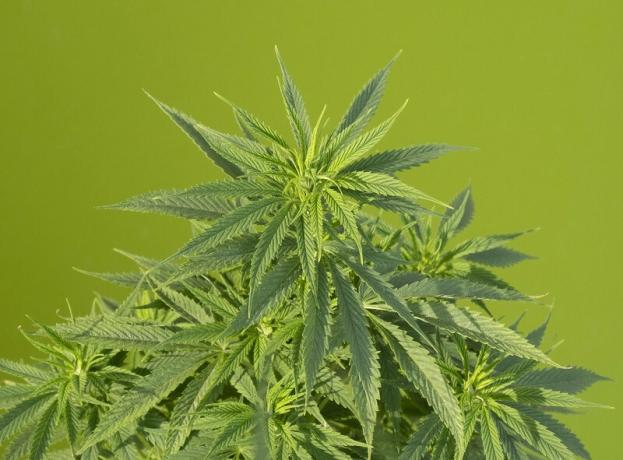The false myth of medical marijuana
Cannabis is the most widely used illegal drug worldwide. It has health risks and a great potential for dependency.
However, at the same time, scientific research on this drug has found much potential to improve people's lives. But what about myth and hype in all this?
- Related article: "Can cannabis use help overcome anxiety?"
False myths about medical marijuana use
In this article I am going to talk to you about some of the most common myths of medical marijuana use (which might not be as medicinal as some people think).
Minimizing the perception of risk of consumption
Disinformation, Facebook group headlines and WhatsApp chain, dominate the digital world today. When we like something, we tend to select and interpret the information around us to accommodate that which we already think (or that we would like to continue thinking about). There are many types of cognitive biases, but this is often called "confirmation bias."
When someone begins to develop dependence from smoking cannabis, he will tend to
give more importance and credibility to news and information sources that talk about how “good” marijuana is for everything. Although many times they are exaggerations, generalizations, even complete hoaxes.When a habitual smoker thinks that marijuana is "natural and healthy", he will tend to consume more often and in greater quantities, due to the low perception of risk he has.
It is all the result of the exaggeration of some supposed benefits. But if cannabis were completely safe, there would be no professionals who help people overcome marijuana addiction.

Smoking cannabis joints is recreational use, rarely medicinal
If you smoke a joint every afternoon or night, it is rarely medicinal use.
That is recreational consumption. Consumption to "have fun." Consumption to feel the "high" so characteristic of cannabis, which makes you forget your problems for a while, die laughing or have a slump of anguish and paranoia.
Medicinal use is when a doctor prescribes you a drug or a compound made from some of the active ingredients in cannabis.
And it is true that there is a lot of promising research on how some of the many substances present in cannabis can help many people to combat chronic pain and many others diseases. But a serious treatment is one that is supervised by a trained professional, by a doctor, with specific therapeutic objectives, doses and frequency of use personalized for that specific person according to their ailment.
Smoking joints with your colleagues is not a medicinal consumption, in the same way that the frozen pizza from the supermarket cannot be compared to a pizza from the Italian restaurant in your neighborhood.
- You may be interested in: "How to stop smoking joints? 5 tips from a specialist "
Smoking joints "for health" is like trying to kill flies with cannon shots
No one can deny that excessive cannabis use carries risks. Cannabis is a plant, and it contains thousands of different substances, it is complex.
Among all those thousands of compounds, some can provide some effects, some totally different. And everything will also depend on the genetics and metabolism of the person, as well as their psychological characteristics.
It reminds me of the hoaxes that "a glass of wine a day is good for the heart." That is the perfect example of hoax and generalization spread by the alcohol industry. It is paradoxical, because being true that some of the substances present in wine can be good for the heart in certain doses, the truth is that they are completely overcome by the damage that alcohol does in the heart.
Namely, the smart thing is to isolate and synthesize that particular compound in the form of a medicine, and that people can take it separately, without the rest of the "poison" that is present in the wine.
The same goes for cannabis. There are specific compounds that, separately, have been shown to help many people with different ailments.
But by smoking a joint, you take away the rest of the harmful substances that create dependency, paranoia, anxiety and irritability problems, even schizophrenic symptoms. Everything but medicinal, especially if you abuse for a long time and with great frequency.
Here's a list of the problems many marijuana smokers experience (and few want to talk about):
- Aggression and irritability
- Sleeping problems
- Chronic stress and anxiety
- Anguish and panic
- Apathy and symptoms of depression
- Paranoia
- Psychosis and schizophrenia
Genetics have a great weight in this matter, as well as the environment and lifestyle of the person. Not all people who use cannabis will experience problems, especially if they use it sporadically and not too frequently.
But what cannot be denied is that, if a person maintains an extreme consumption for a long time, he will be much more likely to end up developing problems in the future. Some people take longer, others take less (genetics). But the more you play, the more likely you are to win the "prize" that no one wants you to get.
How to Overcome Cannabis Dependence and Quit Joint
Do you want to quit cannabis? I am an addiction psychologist, and I work every day with people who want to stop being slaves to a plant. With me you will work:
- The beliefs that maintain your dependence on cannabis.
- Your consumption habits, and how to modify them (without relying on “willpower”, but with scientifically proven strategies).
- The emotional dependence you have on marijuana in different situations in your life.
- How to overcome marijuana withdrawal syndrome.
- How to avoid relapses, and what to do even if you have one (to get up and recover as soon as possible).
Contact me and I will give you an appointment as soon as possible.



